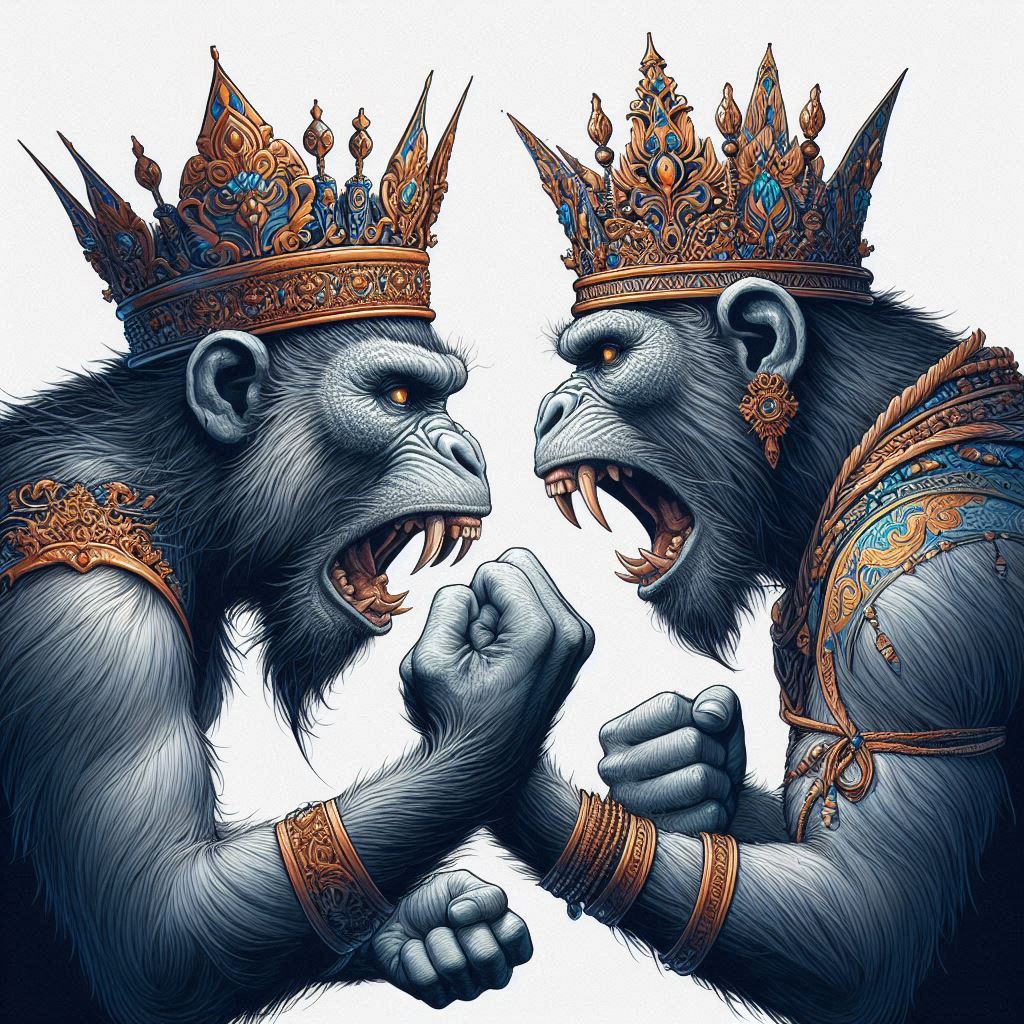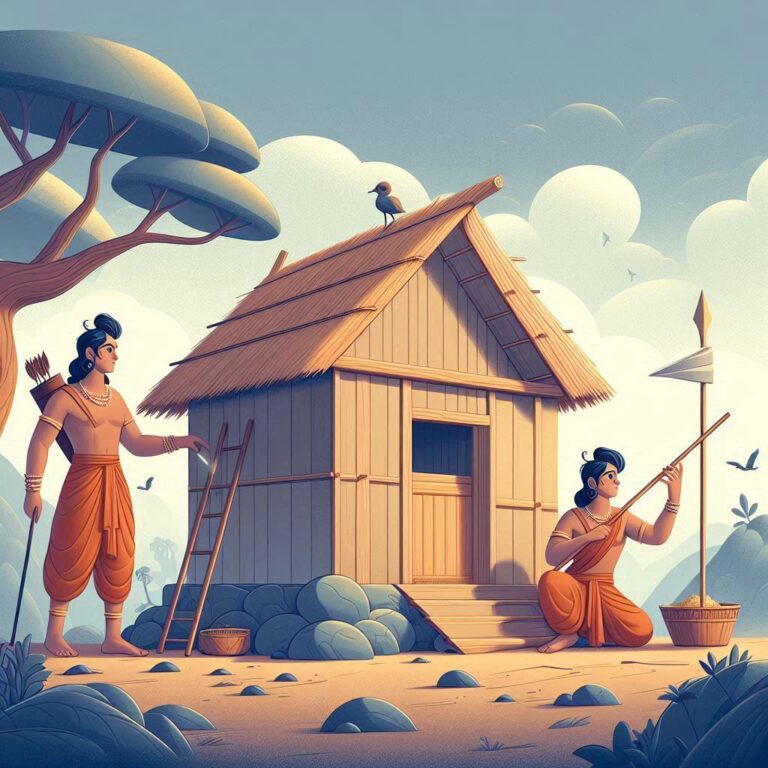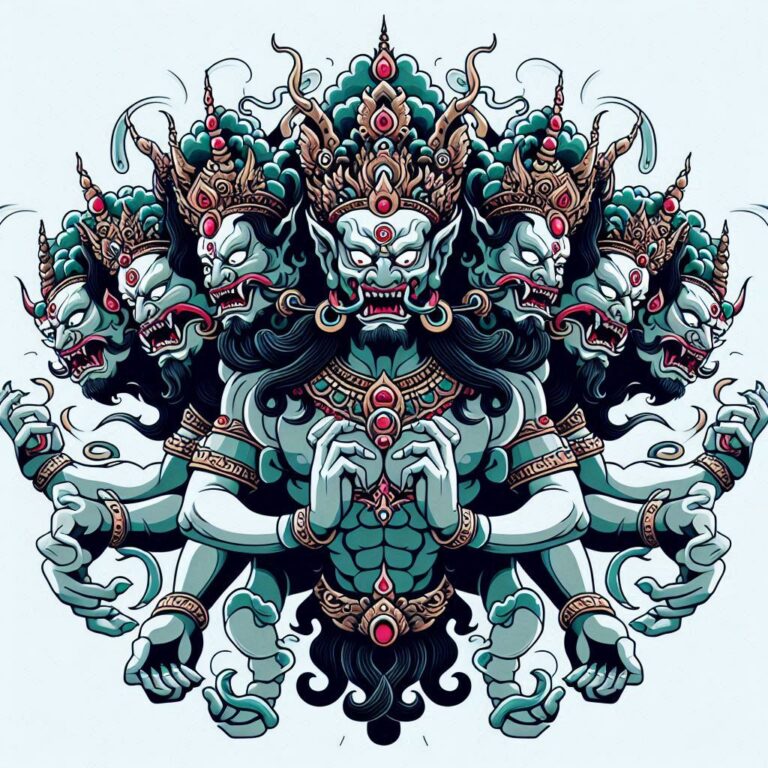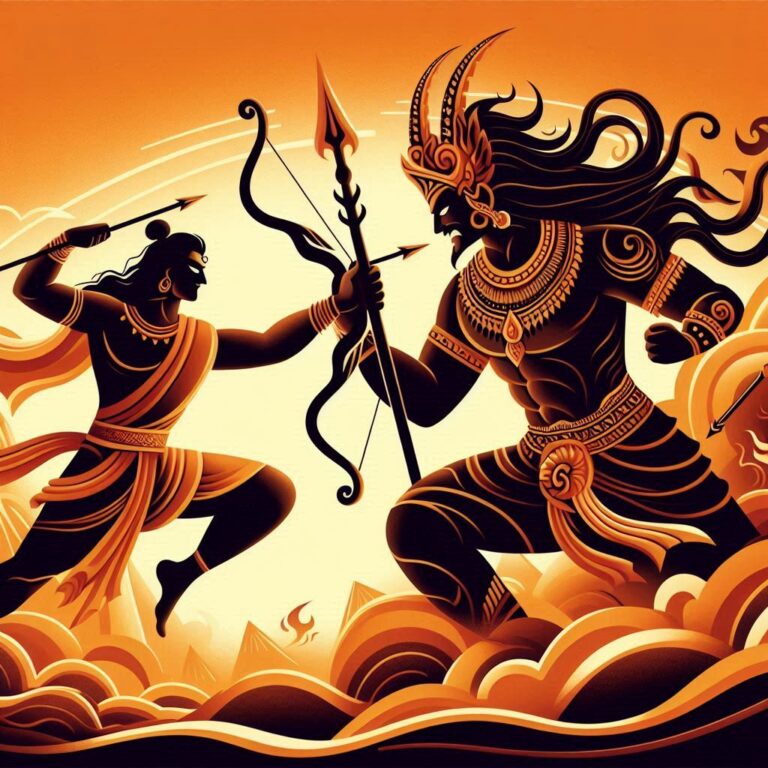Sugriva and Vali: The Epic Conflict in Ramayana Explained
Sugriva and Vali: The Clash of Kings
When diving into the world of ancient Indian epics, the story of Sugriva and Vali stands out like a vibrant painting in a dusty old gallery. If you’ve ever stumbled upon the Ramayana, you know just how rich and layered these tales can be. The relationship between Sugriva and Vali plays a crucial role in this epic and is brimming with lessons about friendship, betrayal, and the complexities of familial bonds. So, buckle up, grab a cup of chai, and let’s unravel this saga together!
The Background of Sugriva and Vali’s Conflict
Before we jump into their conflict, let’s take a moment to understand who these two characters really are. Both Sugriva and Vali are the sons of the Wind God, Vayu, and kings of the Vanara (monkey) kingdom. Their story is not just one of rivalry but also a complex web of emotions and choices that leads to some epic confrontations.
The Brothers: Sugriva and Vali
Vali – The Mighty King
Vali, also known as Bali, was an epitome of strength and valor. Imagine a lion—majestic, powerful, and formidable. He was known to defeat formidable enemies with ease. He possessed the unique ability to absorb the strength of his opposing foes, which made him nearly invincible. His power was not just physical; he had a magnetic personality that commanded respect and loyalty among the Vanara kingdom.
Sugriva – The Exiled Prince
On the flip side, Sugriva is often portrayed as the underdog in this saga. Though born a King, his life takes a drastic turn that leads him to become an exile, much like a small bird forced from its nest. Sugriva is clever, resourceful, and deeply loyal, qualities that would eventually become vital in his fight against Vali. Imagine having a friend who is always there to lend a hand, yet circumstances make them a target for unfair treatment. This was Sugriva’s situation.
The Catalyst: A Breakdown in Brotherhood
So why did this all-important brotherly bond turn sour? It all began with a misunderstanding, compounded with jealousy and ambition. In a moment of insecurity, Vali, believing in the worst of Sugriva, wrongfully accused him of plotting against him. The elephant in the room? This conflict wasn’t just personal; it escalated into a war of egos and pride.
The Woman in the Equation
To understand the dynamics further, we must speak of Ruma, Sugriva’s wife. After Vali’s jealousy flared up, he actually took Sugriva’s wife for himself, further deepening the rift between the brothers. It was a classic case of “like brother, like husband” gone wrong. Have you ever had a friend who let jealousy cloud their judgment? That’s exactly what happened here.
The Showdown: The Fight Between Sugriva and Vali
Here is where it gets juicy! What followed was a heart-wrenching struggle between the brothers. Sugriva, feeling betrayed and powerless, sought the assistance of Lord Rama, the hero of the Ramayana. This led to a greater alliance, but it also helped define the roles of friendship, loyalty, and revenge in the narrative.
Vali versus Rama
Ultimately, the conflict culminates in a legendary battle where Rama shoots Vali from behind a tree, arguing that it was a fair play because Vali was doing wrong by Sugriva. This moment poses a moral dilemma: when is it acceptable to intervene in a conflict? And can love and loyalty sometimes push individuals to make questionable choices?
The Aftermath: Sugriva’s Triumph
After Vali’s defeat, Sugriva does not merely relish his victory. Instead, he honors Vali’s legacy, understanding the complex emotions tied to their conflict. Sugriva becomes king, but he is wiser and more compassionate, recognizing that power comes with responsibility.
Reflections in the Ramayana
Now that we’ve peeled back the layers of this complex relationship, let’s pause and reflect with a few Shlokas and Dohas that resonate with the themes we’ve explored in the story:
Dohas
-
दोहा:
सुखदुःख समे जानि, मित्रता कछु निराले।
(Sukhdukh same jaani, mitrata kachu niraale.)
Translation: Knowing joy and sorrow alike, true friendship is rare. -
दोहा:
जो न साथ दिहिसि, सो न मीत भये।
(Jo na saath dihis, so na meet bhaye.)
Translation: He who does not stand by you is not a true friend. -
दोहा:
वीरता में शान्ति है, शांति से हिरण्य है।
(Veerata mein shanti hai, shanti se hiranay hai.)
Translation: True courage lies in peace, and peace brings prosperity.
श्लोक
-
श्लोक:
कृते कर्मणि संतुष्टः, सदा विमुक्तसिद्धिभिः।
(Krite karmani santushtah, sada vimuktasiddhibhih.)
Translation: One who is satisfied with their actions, is always free from obstacles. -
श्लोक:
सर्वं तु तातसाम्यं, निपुणं प्रतिबन्धनम्।
(Sarvam tu taatasamyam, nipunam pratibandhanam.)
Translation: Everything is affected by ties created through relationships. -
श्लोक:
वीरं सुरेद्राणां च, सन्तप्पर्णशान्ति तत्।
(Veeram suredraanaam cha, santaparnashanti tat.)
Translation: The hero of the gods brings about peace even in trials.
Conclusion
In essence, the story of Sugriva and Vali is a tapestry woven with threads of loyalty, betrayal, and redemption. It’s a story that resonates even today, echoing timeless lessons about the bonds we forge and the conflicts that arise from them. From the misunderstandings tied heavily to emotions, this narrative offers us more than just a thrilling tale; it provides insights into human relationships and morality.
If you’ve ever found yourself at odds with a loved one or a friend, perhaps this story is a gentle reminder that understanding and compassion can often mend even the most broken ties.
FAQs
-
What caused the conflict between Sugriva and Vali?
- The conflict stemmed from jealousy, betrayal, and misunderstandings, especially surrounding Sugriva’s wife.
-
How did Rama get involved in the Sugriva-Vali conflict?
- Rama assisted Sugriva out of loyalty to his friend and to restore justice after Sugriva was wronged.
-
What does Sugriva symbolize in the Ramayana?
- Sugriva symbolizes loyalty, resilience, and the struggles of overcoming adversity.
-
What happened to Vali after his defeat?
- After Vali’s defeat, Sugriva became the ruler of the Vanara kingdom but honored his brother’s legacy.
-
What can we learn from the Sugriva-Vali story?
- One important lesson is the impact of communication and understanding in relationships, showing how pride and jealousy can lead to tragic outcomes.
And let’s not forget, as we ponder these characters and their legacy, we’ll always find something new in ancient texts that resonate with our modern lives! So, keep exploring the stories that shape our understanding of human values and relationships.







